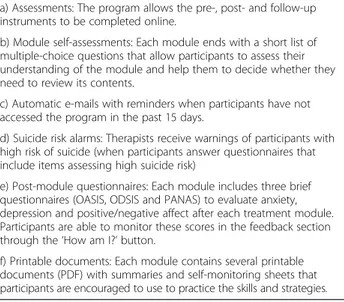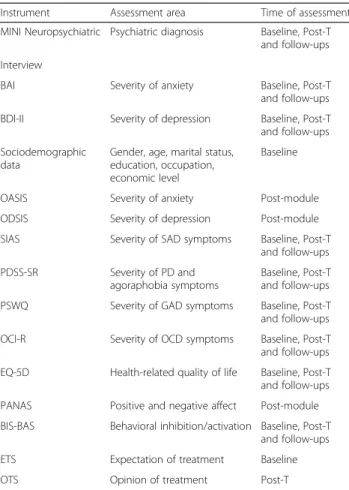Effectiveness of a transdiagnostic internet based protocol for the treatment of emotional disorders versus treatment as usual in specialized care: study protocol for a randomized controlled trial
Texto completo
Figure



Documento similar
Table 1 Descriptions and characteristics of studies included in the meta-analysis ASD Acute stress disorder, GAD generalized anxiety disorder, PTSD posttraumatic stress disorder,
Effectiveness of mindfulness ‐based stress reduction and attachment ‐based compassion therapy for the treatment of depressive, anxious, and adjustment disorders in mental
Effectiveness of Day Hospital Mentalization-Based Treatment for Patients with Severe Borderline Personality Disorder: A Matched Control Study.. Treatment of Borderline
The main objective of the PESAPRO trial is to com- pare the efficacy of two treatments, vaginal progesterone and cervical pessary, in terms of decreasing the rate of spontaneous
The Competitive State Anxiety Inventory 2 (CSAI-2) is a 27 item questionnaire consisting of 3 dimensions: Cognitive Anxiety, Self-confidence and Somatic Anxiety.. A total of 231
The main objective of the current study is to describe the research procedure for a randomized controlled clinical trial in a multidisciplinary intervention
The TELESTAR (Telotristat Etiprate for Somatostatin Analogue Not Adequately Controlled Carcinoid Syndrome) trial is a randomized, double-blind study with 3 treatment arms:
Methods and Results- —We studied cardiovascular disease risk factor changes in the START (Strategic Timing of Antiretroviral Treatment) trial, a randomized study of immediate